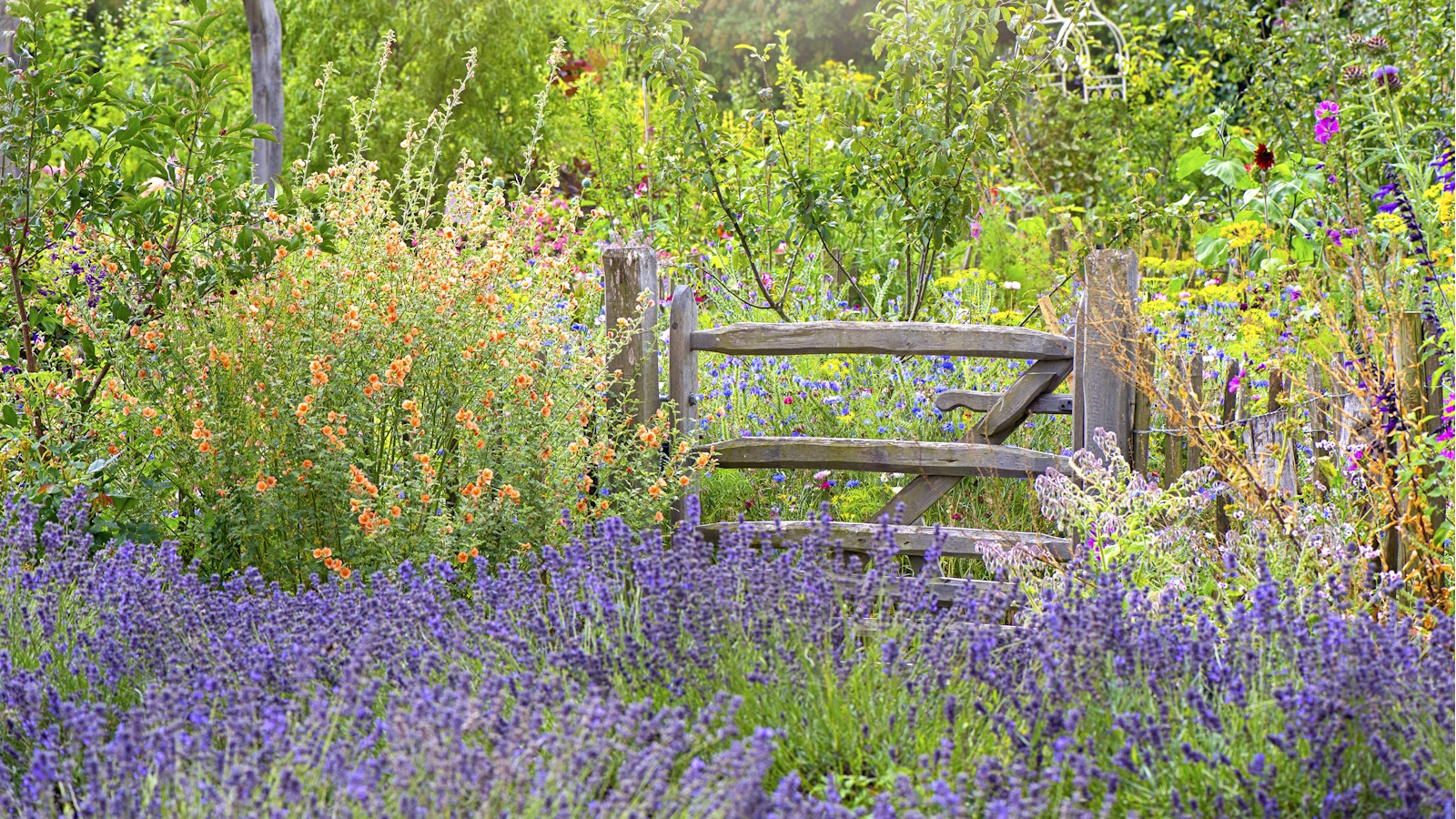
Getting to grips with companion planting can be the key to success for a thriving garden. It entails pairing plants together that will protect each other from pests and encourage healthy growth.
There's a bit of an art to companion planting, with many factors to consider. 'To successfully grow lavender, you can pair it with plants that thrive in similar conditions: well-draining soil and full sun,' says garden designer Laura Janney. You will also want to take into account the plants that can keep pests away and even aesthetic factors, such as complementing colors.
But where do you get started when there are so many possibilities? Look no further; we've compiled an expert list of the best lavender companion plants so that you can curate a perfect display for your yard.
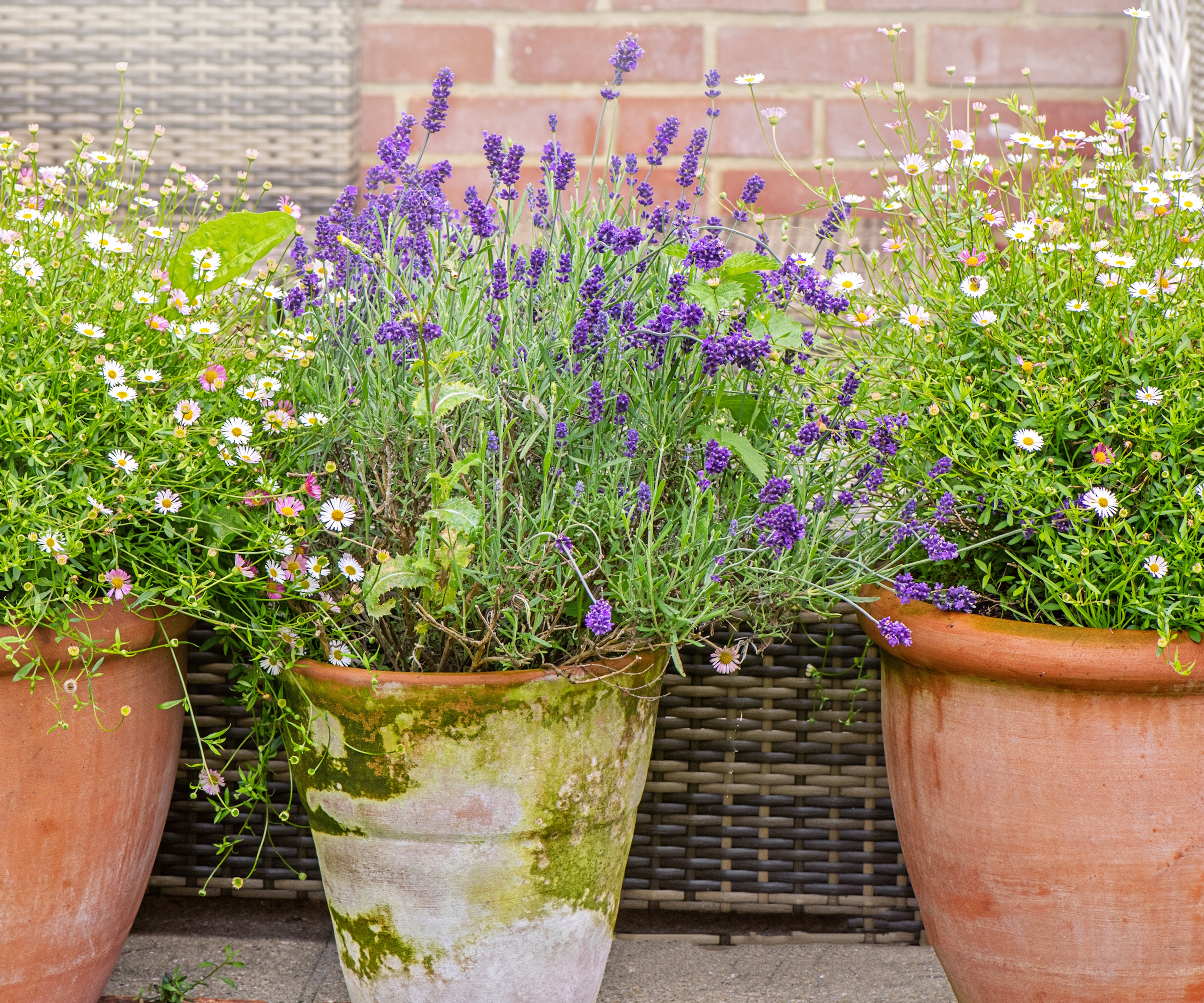
8 lavender companion plants
When it comes to lavender, there are lots of plants that make suitable companion plants. We've narrowed it down to eight of the best lavender companion plants for you to choose from.
1. Thyme
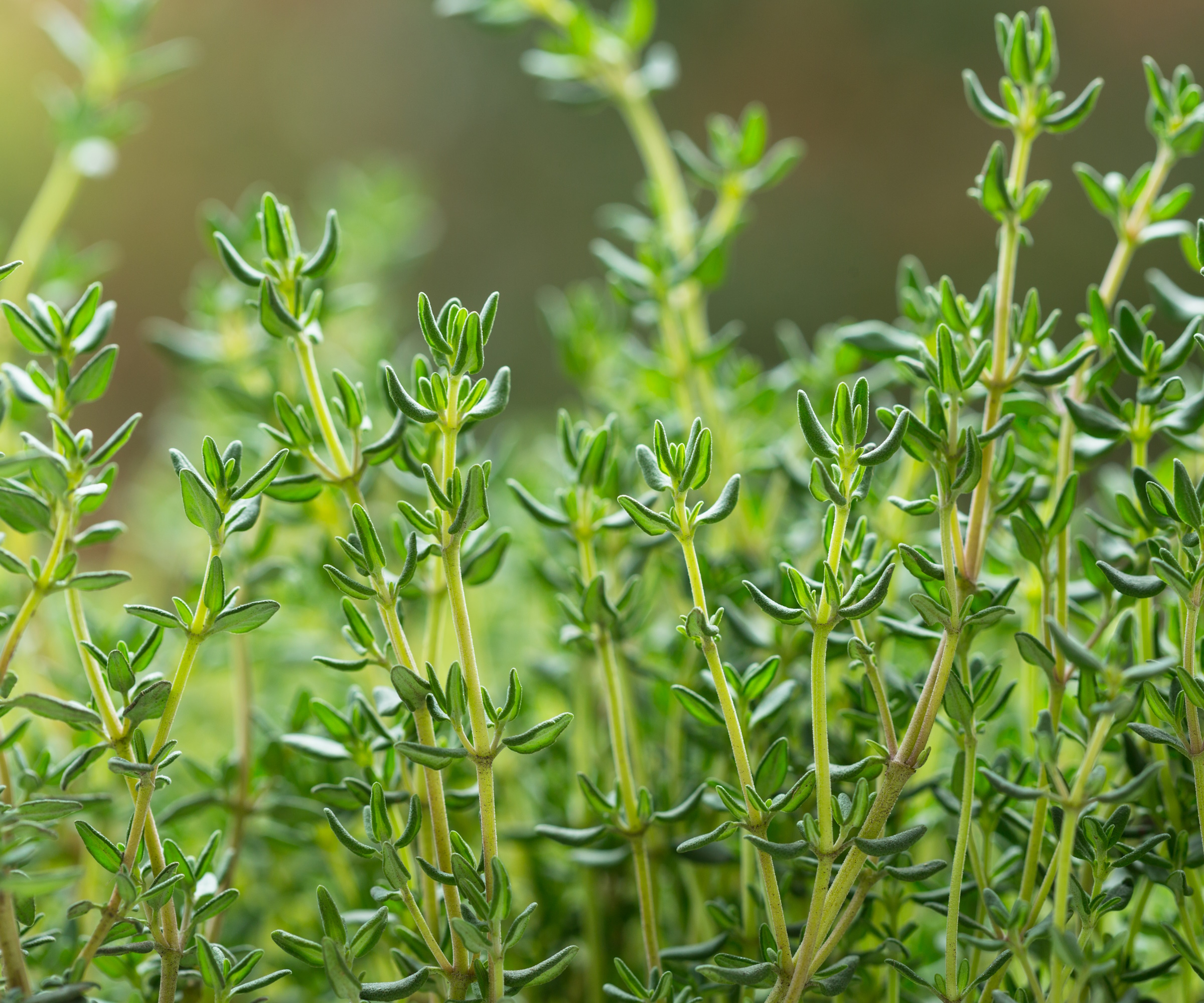
It's no secret that lavender is loved for its strong aroma, making it a popular option for a fragrant garden. Choosing other aromatic herbs can make for good companion planting, like growing thyme.
'Thyme's wonderful aroma complements lavender’s scent, creating a delightful sensory experience,' says Laura. 'Its soft texture provides a lovely contrast to lavender’s vertical structure,' she adds.
Thyme is also among the plants that can help with lavender pests and problems. 'It has natural insect-repelling qualities, enhancing the garden's pest defense,' says Laura.
US hardiness zone 5 is where thyme will thrive best, but it can be grown across most zones. Find thyme starter plants from supermarkets, like this thyme plant from Walmart.
2. Rosemary
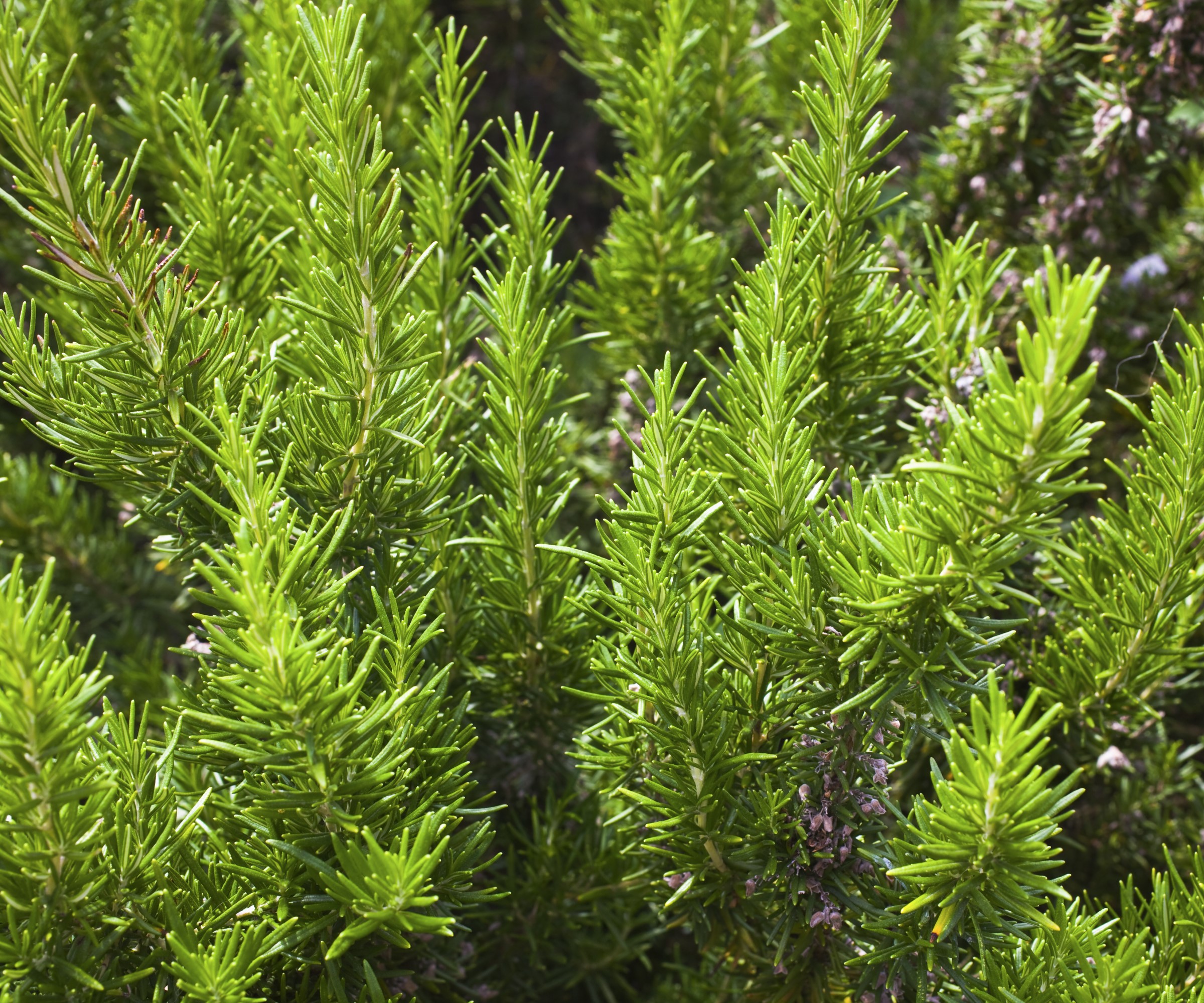
Like growing thyme, growing rosemary near lavender can enhance the aroma of your garden. The combination of all three can be a great way to create a herb garden.
'Both native to the Mediterranean, lavender and rosemary work well together,' says Laura. Both rosemary and lavender have similar growing requirements, so it's effective to plant them together.
'Note that rosemary doesn’t winter well in colder climates,' Laura adds. Rosemary will thrive in US hardiness zone 8 and zone 9 and it can be a good idea to overwinter rosemary, as well as winterize lavender.
Find rosemary plants from a range of suppliers, like this this rosemary plant from Walmart.
3. Roses
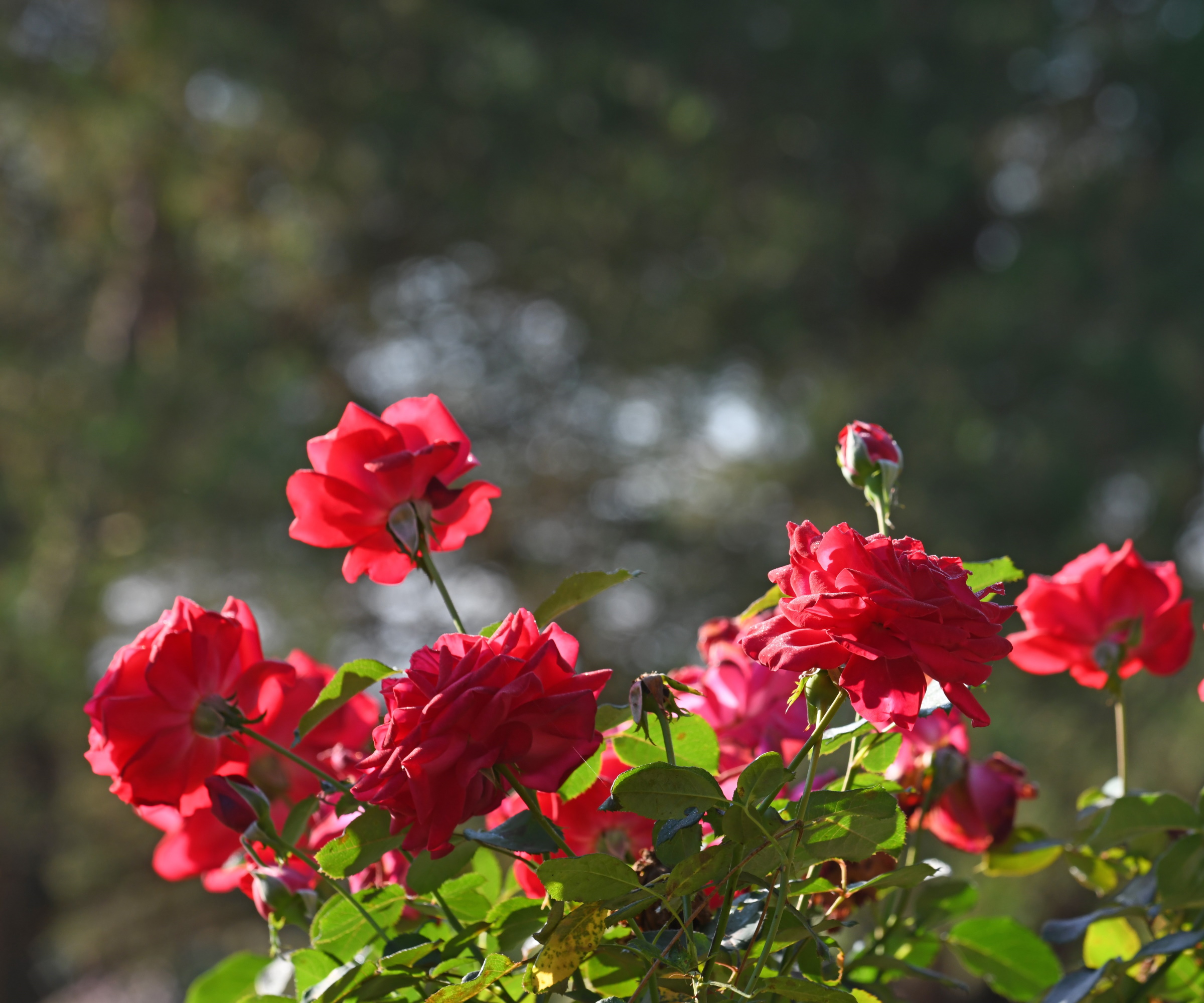
If you're looking for other plants to grow in your well-draining soil beside lavender, consider planting roses. The good news is, there are plenty of rose varieties to choose from, so you can find the best one for your space.
'The lushness of lavender can hide the legginess of roses, and lavender attracts ladybugs which eat aphids that are drawn to roses,' says Laura. 'The soft, airy texture of lavender complements smaller, dense rose bushes, and their combined scents are heavenly,' she adds.
Planting lavender at the base of rose bushes can help to create an attractive display, as Laura notes. Lavender is also a great rose companion plants to help combat rose pests.
The type of rose will determine the US hardiness zone it grows in, but roses can generally be grown across US hardiness zone 7 to zone 9.
4. Citrus trees
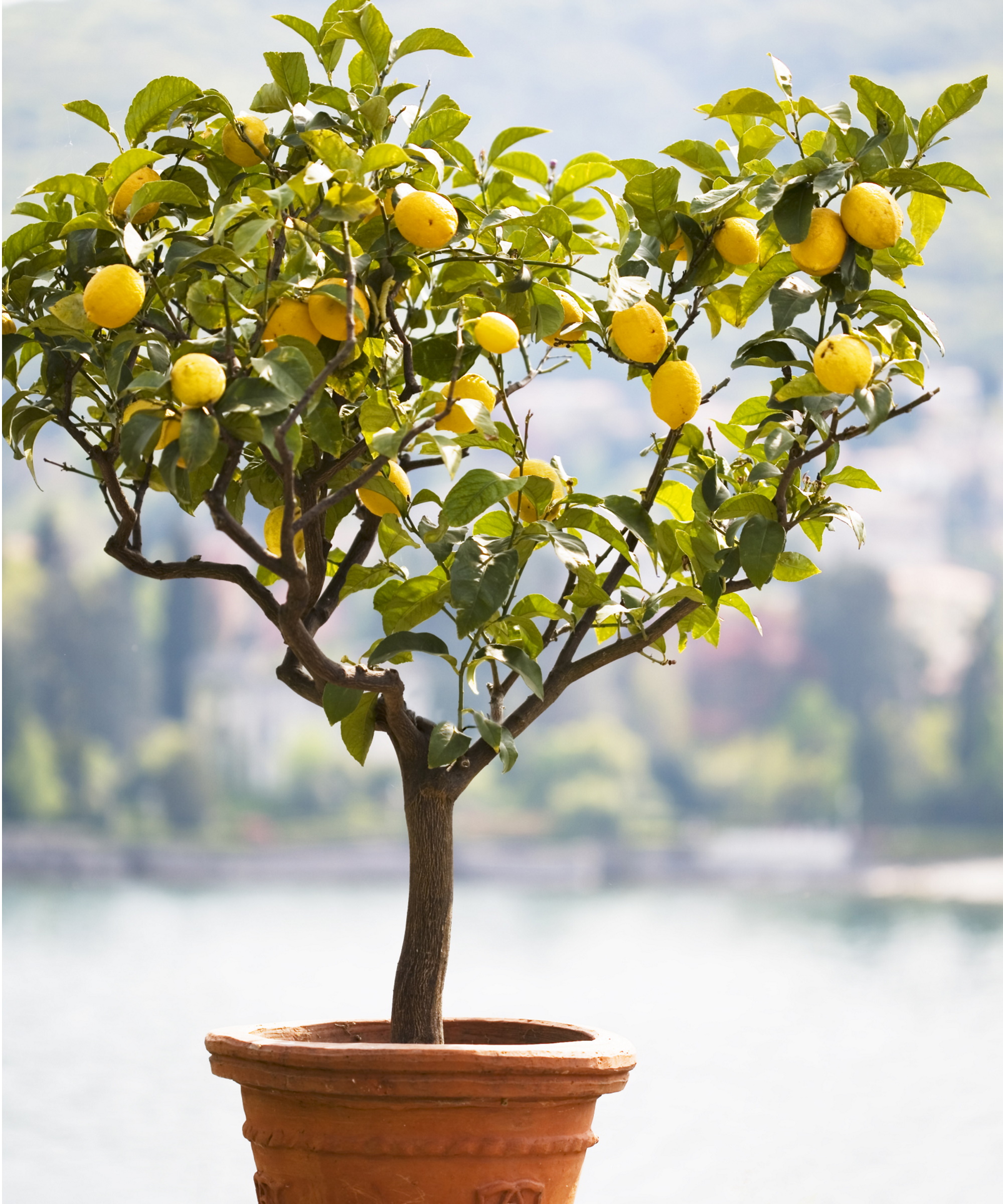
To enhance your kitchen garden even further, try planting lavender near your citrus trees.
'Lavender attracts pollinators, which are essential for citrus trees,' Laura notes.
Citrus tree care can be very particular, and having the help of pollinators can encourage a more abundant harvest. Lavender is one of the best flowers that attract bees, so having this purple flower near your citrus trees can enhance pollination.
Lavender is also a plant that can help get rid of aphids, a pest that often targets citrus trees.
Citrus trees tend to grow best across US hardiness zone 8 to zone 10. You can find citrus trees from a range of suppliers, like this Meyer Lemon Tree from Fast Growing Trees.
5. Alliums
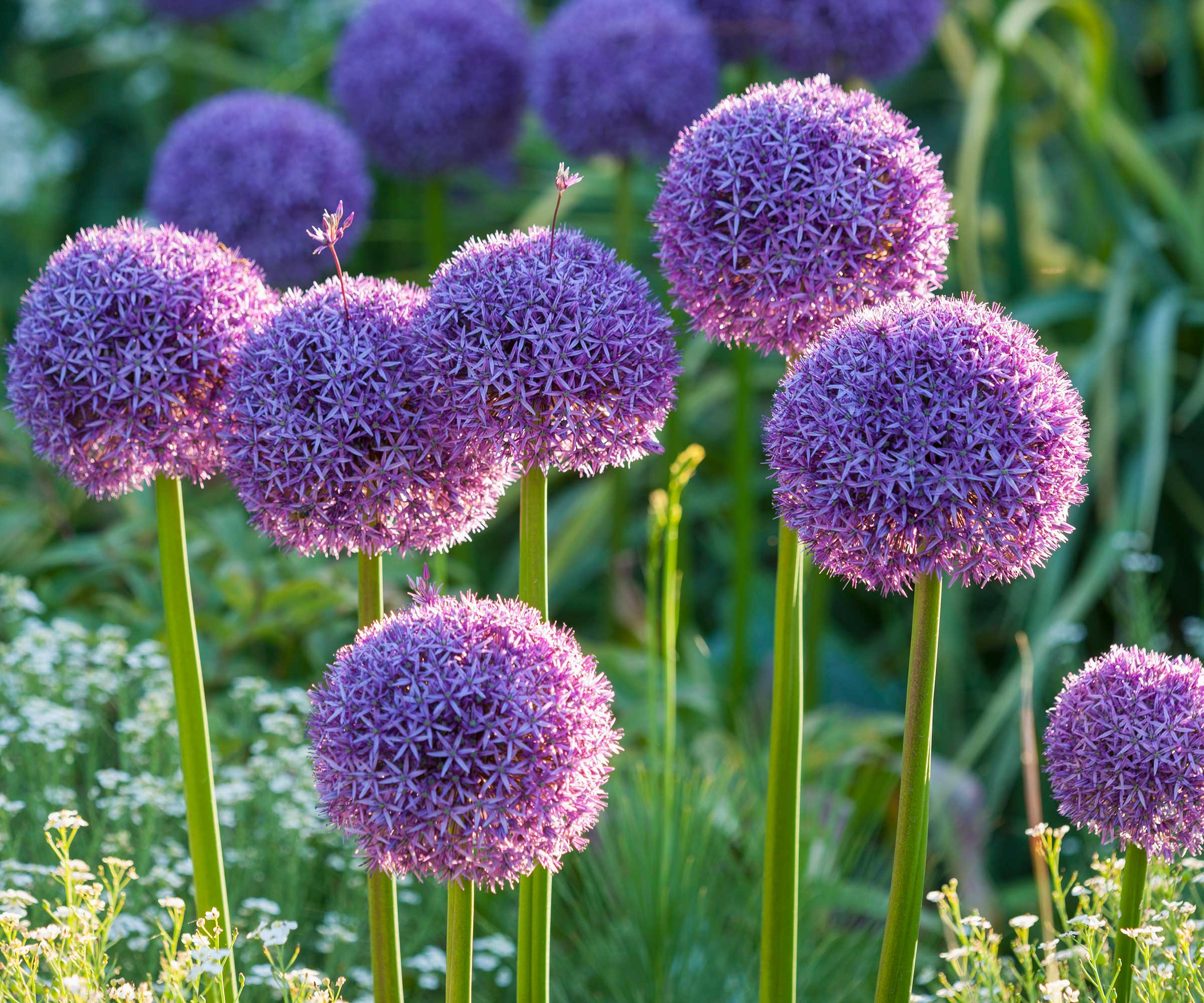
To make a garden for pollinators, try planting allium bulbs with lavender. Allium varieties like Allium 'Purple Sensation' can also add to your purple plants display.
'The similar color palette creates a soothing visual in the garden. The bold, round blooms of allium contrast nicely with lavender’s small, delicate buds, adding a wonderful accent,' says Laura.
You might also choose to plant edible alliums, like growing garlic, in your kitchen garden alongside lavender.
Depending on the variety, alliums can grow well across US hardiness zone 3 to zone 9. Find alliums from online nurseries, like this Millenium Allium from Nature Hills.
6. Marigold
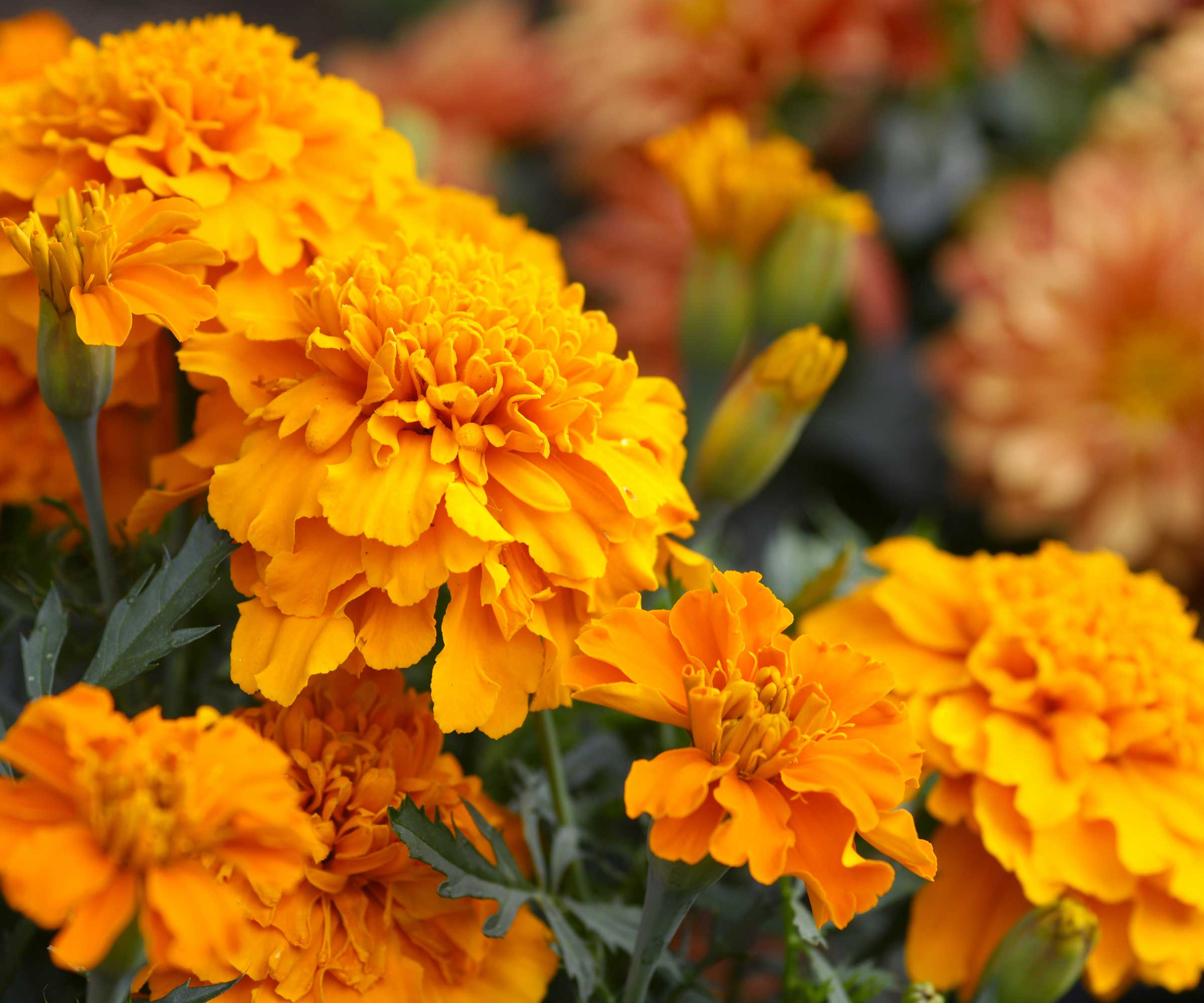
Arguably one of the best companion plants to repel insects, marigolds are often used in vegetable gardens and are a great option to plant near lavender to keep pests away.
'Drought-tolerant like lavender, marigolds have one of the strongest scents in the garden and excel at repelling insects,' says Laura. 'Their bold, compact form contrasts beautifully with lavender’s long stems and airy appearance,' she adds.
You can grow marigolds from seed and grow marigolds in pots, making them versatile and easy to move around to different areas of your yard to keep pests away.
Marigolds can grow across US hardiness zone 2 to zone 11. Try growing marigolds with this marigold grow kit from Nature Hills.
7. Catmint
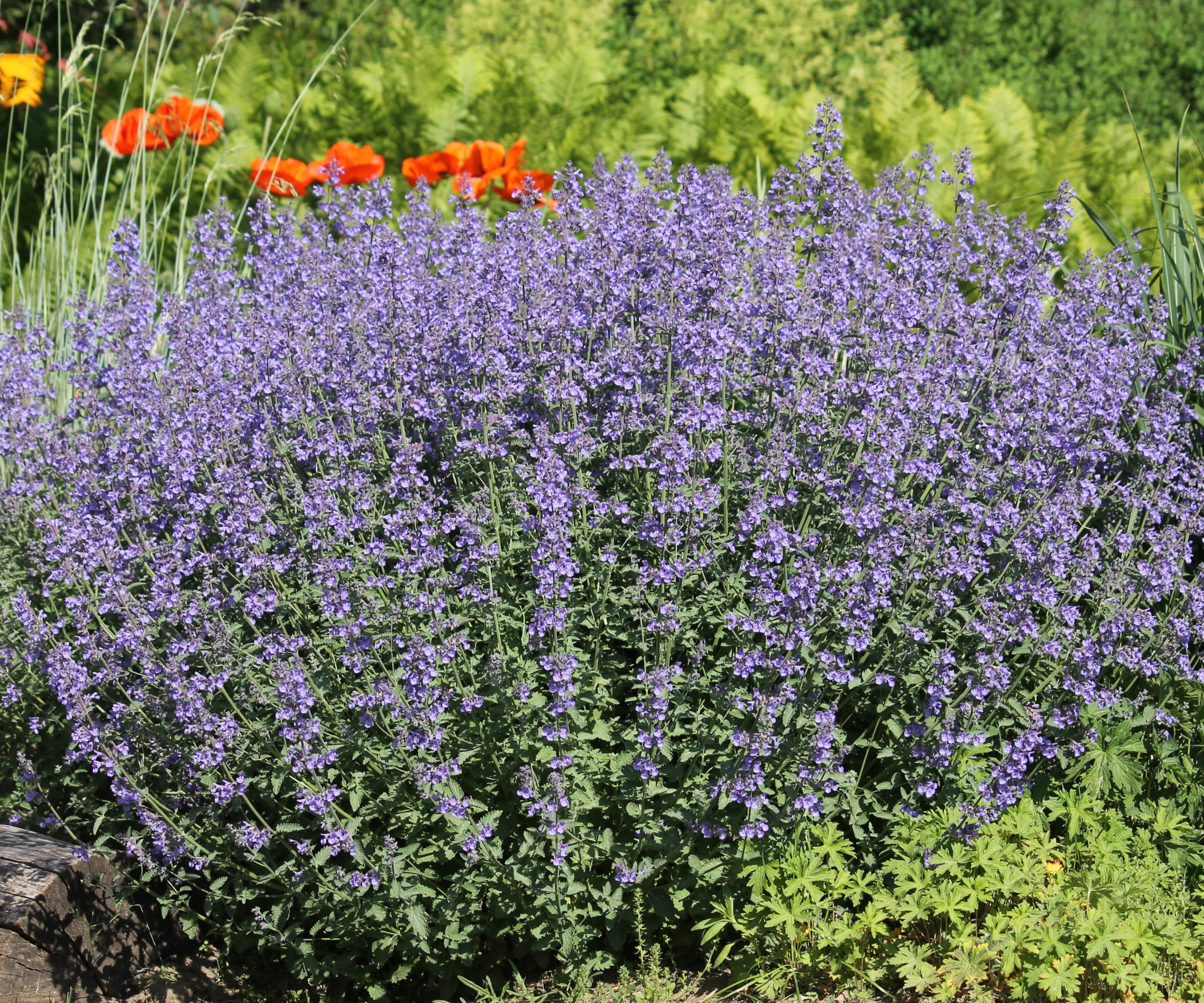
Just as lavender is drought-tolerant, it can be a good idea to choose other plants for your drought-tolerant landscaping. This includes catmint, a purple flowering herb that has a similar appearance to lavender.
'Drought-tolerant and sun-loving, catmint has a similar purple hue. It's more rounded, yet still has a soft and dreamy appearance,' says Laura.
Take care to prune catmint after flowering to encourage returning blooms next spring.
It will grow best across US hardiness zone 3 to zone 8 and can be bought from a range of suppliers, like this catmint from Walmart.
8. Sage
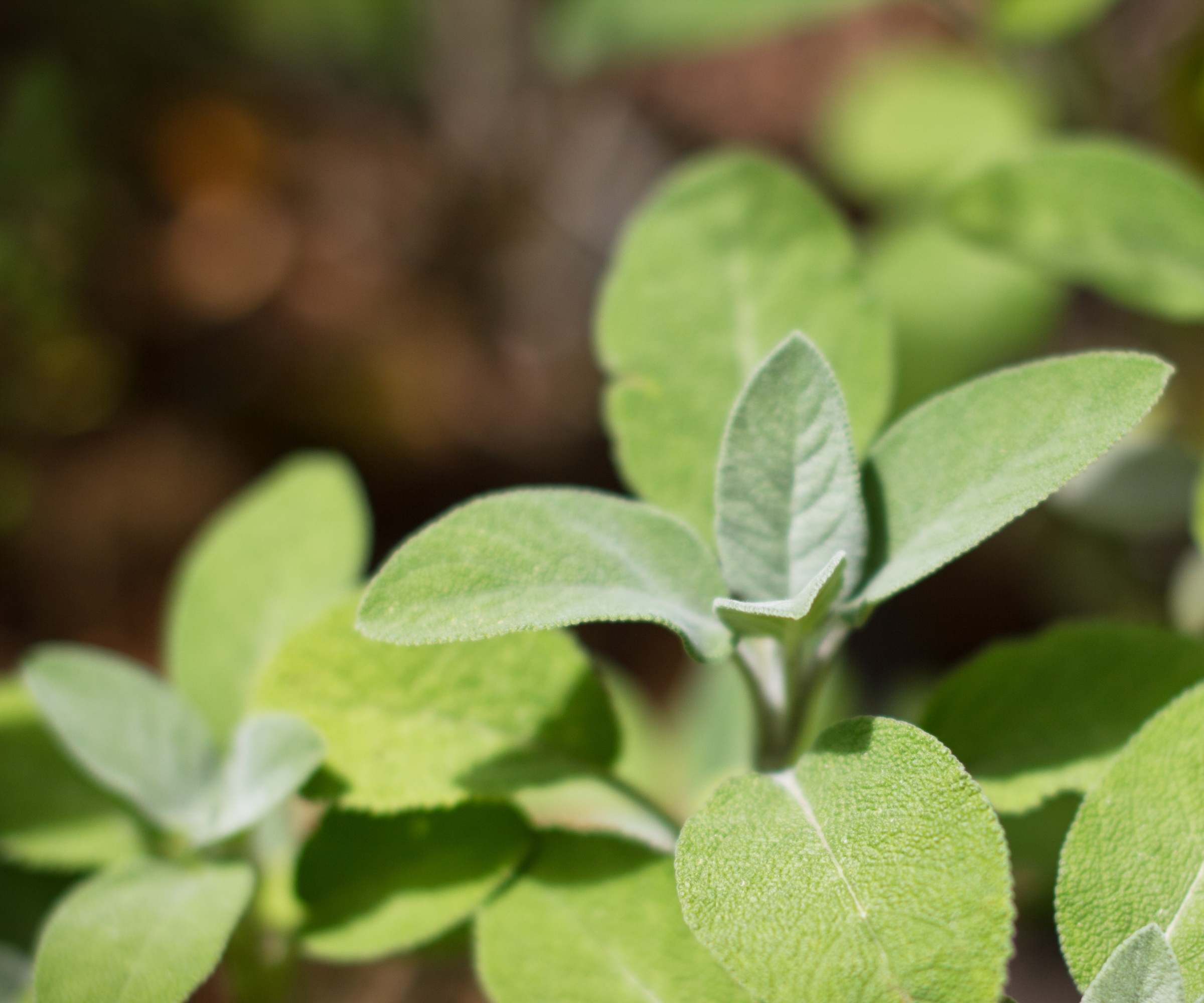
If your planting isn't smelling enough for you just yet, why not grow sage with your lavender? Sage is a good pest-repellent plant thanks to its strong aroma, helping to keep surrounding plants safe from pest damage.
'This herb pairs wonderfully with lavender. Its muted green hue complements the soothing color of lavender, and it adds a lovely scent to the garden,' says Laura.
'Companion plants not only thrive alongside lavender but also enhance the overall beauty and functionality of your garden,' she adds.
Grow sage in US hardiness zone 4 to zone 10 for an earthy addition to your herb garden. Find starter plants at supermarkets, like this sage plant from Walmart.
FAQs
What shouldn't be planted next to lavender?
When it comes to companion planting, it's key to choose plants that all thrive in the same conditions. Lavender is considered fairly drought-tolerant and therefore doesn't work well with plants that require a higher moisture level, such as ferns and azaleas. Always research optimal growing conditions before pairing plants together.
Choosing the right companion plants can help your lavender thrive - try planting these ones and watch your lavender display bloom. You can explore our expert ideas for landscaping with lavender for more ways to use lavender in your backyard.







